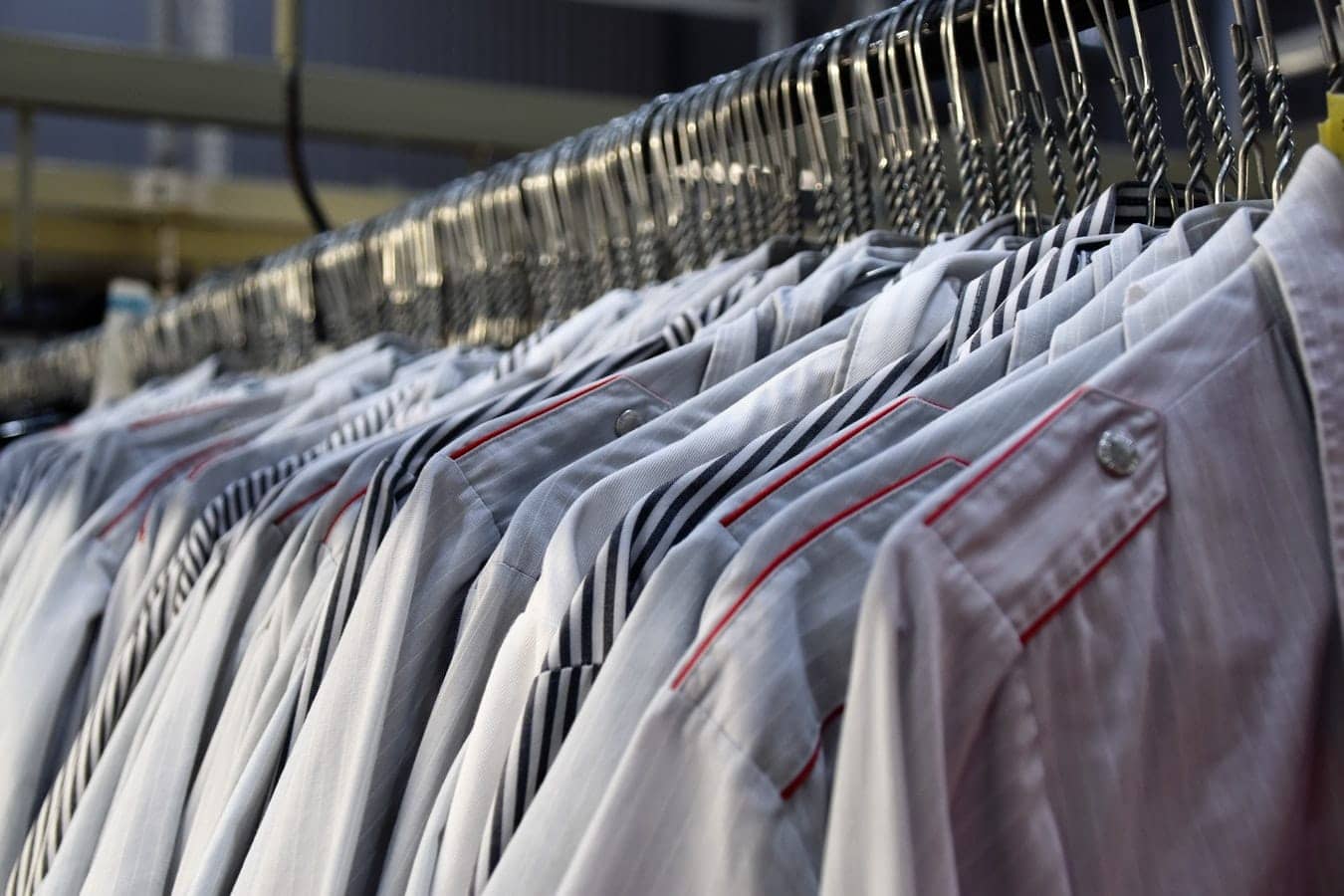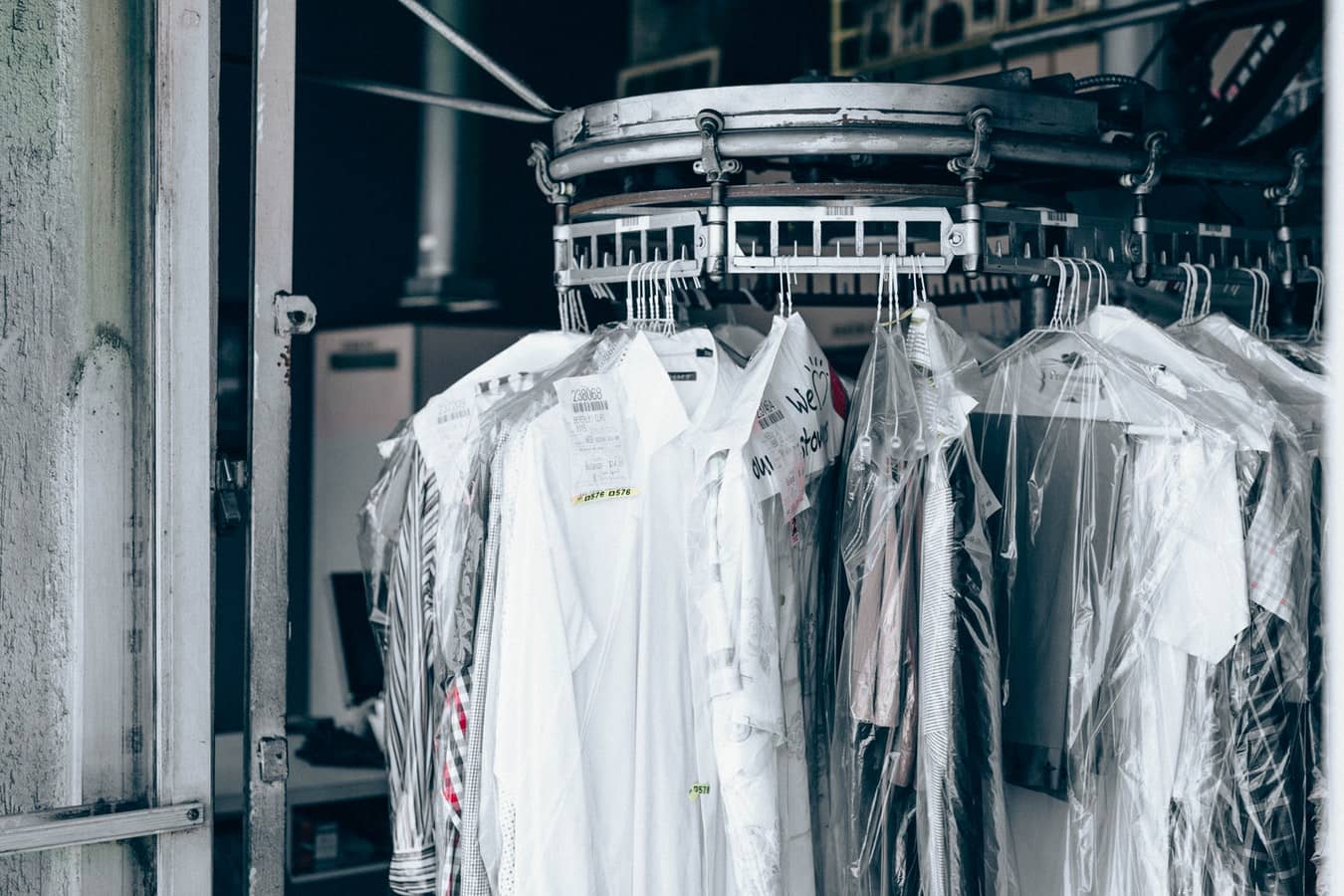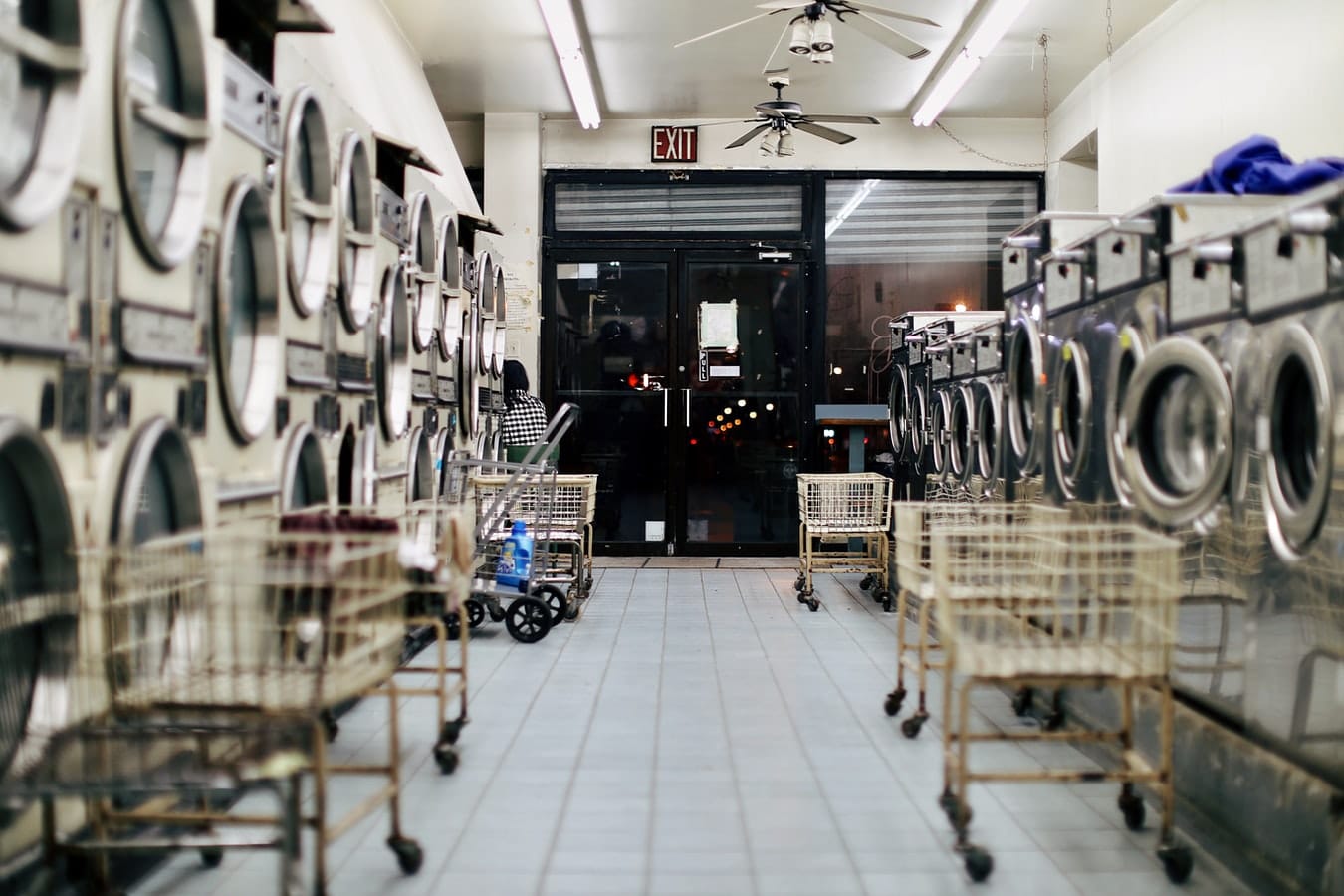When it comes to keeping our clothing neat and good-looking, quite many people ask themselves what option to choose: dry cleaning or a simple laundering. The issue becomes a true point of concern when we have to deal with old stains or grease that successfully survived multiple washes.
So what is best? And what is safest? Dry cleaning vs laundry! Who will win?
Let’s figure that out!
Dry Cleaning. What It Is And How It Works
To find the answer to the question of which cleaning method works best, we need to figure out first what each of them is.
Dry cleaning, as it comes from the name, uses no water when cleaning clothing. However, some liquid is still used, and this liquid is perchloroethylene (or simply perc) which is the main point of arguing. Perc is a toxic and harsh chemical solution that works perfectly when we need to get rid of nasty grease or stains.
Since dry cleaning is basically used for the massive and heavy items that can’t be washed at home manually (for instance, carpets, rugs, curtains, bedsheets, or even heavy gowns), those items are pre-treated with perc and then loaded to the machine to tumble dry them.
Such a method has its advantages, of course.
- It cleans well
- It is fast
- It leaves no shrinkage
- Your items won’t bleed, fade, or distort
- It allows us to keep the sturdiness and thickness of the massive items like carpets or curtains
- The fabric doesn’t become crumpled after the dry cleaning
- Dry cleaned items preserve their color and texture without any changes. Soft things will remain soft, and furry carpet will be the same fluffy as it was before!
It definitely makes the items’ lifespan longer - It fights grease and old stains effectively
- And finally, dry cleaning reduces the risk of discoloration
It sounds all well and good, doesn’t it?
So why do so many people get concerned about dry cleaning their clothing and household items?

Laundering And Its Distinctions
Let’s take a look at another option now. Laundering, or simply saying ordinary wash.
As you all know, this way of cleaning garments requires water and a washing product, powdered or liquid – up tp you.
Sometimes, additional products might be needed, for instance, bleach to deal with stubborn stains or a softening liquid.
We normally do laundering ourselves, nevertheless, some people prefer to take their clothing to the special public laundries to not waste time on this washing fuss.
Does this method have any strong sides? Well, in fact, it does.
- It can be done whenever you need, without waiting for your turn
- It costs less than dry cleaning (well, maybe not if you are using some super expensive washing products)
- It is simple to perform
- It cleans garments to the deepest corners
- Washed items have a pleasant fresh scent (that depends on the product you use, however)
- The laundered items have no chemical odor
- Washing is safe to use since it requires no chemicals in the process
- You can clean almost any fabric like this, even such delicate ones like silk
- It is harmless for the environment
In terms of convenience, laundry is way comfier since you don’t have to drag your clothing to the nearest dry cleaner’s and wait until it is finished. Besides, considering that we often need to do small daily washes for the small items, laundering becomes a 100% winning option.
Things You Wouldn’t Like About Both Methods
But of course, both dry cleaning and washing have their specific negative features that are good to know, especially if you can’t decide for sure which way of cleaning fits you best.
Dry cleaning cons:
- It leaves a heavy chemical odor on the items that can be harmful since a hazardous product is used for cleaning. That is why dry cleaned items must be aired for quite a long time before putting them on
- It doesn’t clean off sweat stains and the odor in a men’s shirt collar the same well as washing does
- It is expensive, and there is nothing to do with it
- It uses harmful chemical
- It may not always cope with the tough stains that are not oily or grease
- SOmetimes chemicals used for cleaning can stain the clothing
Laundering negative features:

- It takes more time to get the final result (a ready to wear item)
- It is not suitable for massive items like curtains of carpets
- Washed apparel can often shrink, discolor, or the color may bleed
- It doesn’t work on all types of fabrics
- Sometimes it can’t deal with old and nasty stains
So what do we have in the end?
Dry cleaning is faster, more effective on stubborn stains, it is more friendly to clothes since any shrinking or distortion is highly unlikely to happen. On the other hand, it is quite expensive and not comfy for daily use.
Besides, people with sensitive skin may have an allergic reaction to the chemical used for this type of cleaning, not mentioning this stuff’s harm to general health.
And then there is washing. With more time to spend, some risks of shrinking and other unpleasant effects that can appear on garments, but cheaper and way more acceptable for the small daily needs. In addition, you will get a bonus: a pleasant scent on your freshly laundered garments which you can choose yourself! Just buy the detergent that smells best to you.
The obvious conclusion can be the following: use laundry for the daily washing, and leave the dry cleaning for any special occasions like extremely oily or greasy marks on your favorite suit that you know an ordinary washing powder will never deal with.
Anyway, who said you couldn’t bring your garments to the nearest laundry if you don’t feel like doing it yourself?
And if you are worried about polluting the environment, shift your ordinary laundry product to the eco-friendly one (fortunately, today we have plenty of them of any price), and try not to overuse water (which means launder reasonably: everyday loaded to the top washes are definitely not ok).
[wp-faq-schema title=”Frequently Asked Questions”]

Can you dry clean clothes that say do not dry clean? I have a blouse with nice embroidery on the front part, but the tag says no dry cleaning. But it takes so long to wash it and then dry! Can I neglect the warning?
Well, if your blouse is embroidered, then I’d not recommend dry-cleaning it since the threads can be discolored or even worse – dissolved. I guess you wouldn’t like to ruin such a nice item.
Does Dry Cleaning remove the odor? I have a suit that smells really weird as if it was kept in a dusty attic for ages. I’m thinking of dry-cleaning it. Do you think it’ll work?
Definitely! Dry cleaning can cope with any odors. Whenever I have any smelly stuff to clean, I take those to the dry cleaner’s!
What fabrics should not be dry cleaned? Will silken garments survive the chemical cleaning, how do you think?
I only know that synthetic fabrics need no dry cleaning since they cope with washing pretty well if laundered on the proper program.
As for silk, don’t dry-clean it since the item will be ruined. Better wash it on the gentlest cycle or manually.
How often should I dry clean my clothes? It’s mostly my husband’s suits but he wears them almost all the time, 5 days a week for sure.
If you mean suits, then two times a year is enough. I don’t think your husband can stain or soil them so much that they will need more frequent treatment!
I’m going to dry-clean some of my clothing, but there’s an issue. Should you wash clothes before dry cleaning? Does anyone know?
No, why would that be needed? I never do that, at least. Just take out everything from the pockets and mark the dirty areas.
Hi! I have several garments that require very delicate cleaning. So now I’m trying to figure out what method to use. Dry clean vs washing machine? What would you recommend?
Hi! I guess it depends on the type of garment, its fabric and cleaning requirements. Some fabrics can only be dry-cleaned while others are ok with delicate washing. I’d say you should double check the care tags on your garments and then sort them according to the care instructions. But if all of them need dry cleaning only – well, then you don’t have much choice!
What are the advantages of dry cleaning? Is it really better than washing? I heard they use chemicals when dry-cleaning clothes, so I’m concerned about the safety of this method. What would you suggest?
As a person who used to dry-clean my clothes, I can tell you that this method is faster and easier since you don’t need to do it yourself. And I’d say it’s more effective, meaning that clothes come out better cleaned than after the laundry. But yes, chemicals were also an issue for me. Mostly because of the smell – I had to air my clothes for 1-2 days after I received them from a dry cleaner’s.
What is dry cleaning in Laundry? I mean, how dry cleaning is going on? What sort of cleaning is it?
Dry cleaning is a type of cleaning clothes method that uses chemicals and solvents other than water. Clothes are soaked in a water-free liquid solvent and processed in a dry-cleaning machine. Then, the clothes are dried in a stream of warm air.
Hi everyone! I need your help folks. Right now I’m considering the dry-cleaning of a part of my clothes, but I’m still worried about this process’s safety. What are the disadvantages of dry cleaning? Could you share please?
Personally for me, the greatest disadvantage is the use of chemicals since I know they may cause skin issues and even allergies. Plus, these products have rather strong smells as for me. And, well, you have to pay each time you need to dry-clean something which might not be handy if you have very few items to be cleaned.
Does dry cleaning damage your clothes? I have several blouses and dresses that require dry cleaning only, but all the dresses have embroidery and beading, so I’m not sure whether those survive the dry cleaning machine. Any ideas?
Normally, it doesn’t damage clothes since dry cleaning is way gentler than laundry. As for the decorative elements e.g. beading and embroidery- you’d better ask a dry-cleaner’s stuff. They know for sure whether it’s ok to clean such apparels.